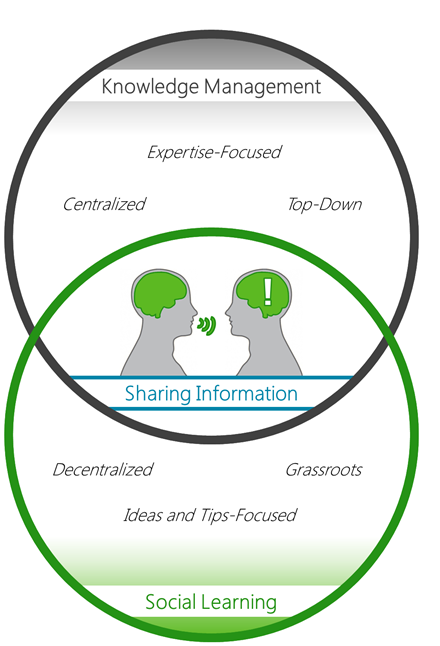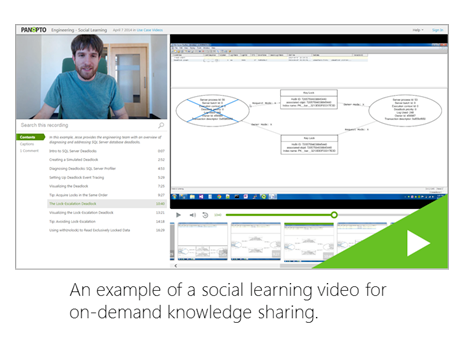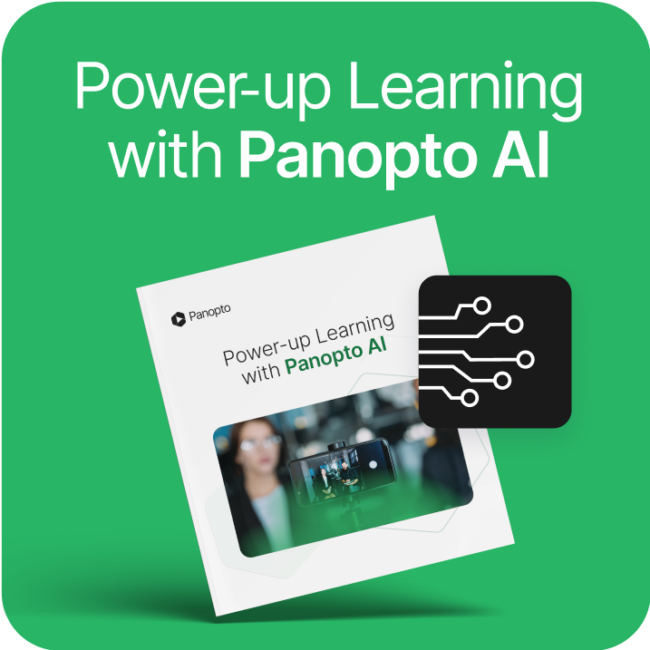- Communications
Social Learning Vs. Knowledge Management: What’s The Difference?
It takes only a quick scan of the headlines, conference agendas, and twitter feeds of today’s corporate learning and development community to see which subject has caught the eye (and the buzz) of training professionals. Social learning in the enterprise — while itself nothing new — has found itself the center of attention among learning teams in businesses large and small.
It’s not hard to see why, either. The well-known 70:20:10 model has long contended that informal knowledge sharing among colleagues is responsible for some 70% of the information an employee will learn on the job. New studies suggest that figure may even be closer to 80%.
Research also tells us this is a very good thing — according to Indiana University, social learning improves people’s problem solving capabilities more and more quickly than does individual innovation. For businesses, this result suggests the shortest path toward continued improvement is relying on informal knowledge sharing to drive ongoing evolutions, rather than wait for a flash of innovation to inspire a some yet-unknown “this-changes-everything” revolution.
Moreover, organizations are finding that it’s become easier to put hard numbers on the value of social learning. One study estimates that at least $31.5 billion is lost annually by Fortune 500 companies as a result of failing to share knowledge. Which is likely why, according to Bersin Associates, the average company now spends 3 times more on social learning technology than it did in the past. 
Just What Is Social Learning, And What Makes It Different From Knowledge Management?
Before we dive into the differences, let’s start with what knowledge management and social learning have in common. At their core, these activities are two sides of the same coin — both are concerned with enabling employees to share information critical to their work and enabling organizations to preserve those ideas as an internal resource.
It’s how the two practices go about enabling the exchange of those insights that set them apart. To help simplify the differences, check out the diagram to the right.
Corporate Social Learning: Defined
In the modern learning environment, “social learning” refers to the decentralized, “grassroots” exchange of tips, ideas, and best practices between colleagues. Its quintessential example would be that of a new hire trading instant messages with a veteran teammate to ask how a particular technology or process works.
The informal, “bottom-up” practice of social learning has existed perhaps for as long as people have worked side-by-side, trading pointers to help everyone succeed. Until recently, however, the knowledge was an impossible resource to tap. If the on-site expert wasn’t available — stuck in a meeting, gone for the day, or worst of all, no longer with the company — their co-workers were forced to either find another resource or simply do without.
As a stopgap measure, some organizations introduced peer-to-peer training events (often called “brown bag sessions”) where internal experts could teach their colleagues the tips and best practices they relied on. This had some benefits — institutional expertise could be more widely shared, and other team members learned which subject matter experts they could turn to — but had one severe limitation as well. As with any live event, brown bags were only helpful if you could actually attend. Coordinating schedules was no small issue.
What’s has transformed enterprise social learning into a full-fledged business practice today isn’t any new change in training strategy or estimated value — it’s improved technology. At first with message boards and wikis, and now with flexible desktop-level video platforms, companies can enable their people to document and share their knowledge anytime and from anywhere. And as the New York Times has noted, not only do these tools make it easier for experts to share, they make it simple for their employers to save — preserving institutional knowledge so that anyone in the organization can benefit from it, even after the expert has left.
How much could you save by
sharing knowledge through video?
Knowledge Management: Defined
Whereas the practice of social learning has evolved as a managed form of informal learning, the practice of knowledge management started in the other direction — as a top-down technique dedicated to seeking out and preserving high-priority institutional knowledge.
While knowledge management as a business process has existed for a few decades now, its roots also stretch well into history and the common practice of apprenticeship. As modern organizations have grown and expanded, and especially as individual subject matter and technical expert roles become more and more essential, business leaders have been quick to recognize the need to curate and preserve the insider understanding of how various products and processes actually work.
As such, knowledge management was born with an executive mandate to learning and development teams — figure out what’s essential to know, and make sure it’s documented. Behind this charge quickly sprung up a host of supporting tools and dedicated specialists, all ready to capture those details that collectively would make up an organization’s competitive edge.
So Why Does Social Learning Have All The Hype?
The emergence of social learning owes a credit to many factors, but perhaps none quite so much as the rising recognition of the value of crowdsourcing.
Coined by Wired Magazine in the early 2000s, crowdsourcing was a recognition that the collective intelligence of a large community nearly always better over even the best insights of a single expert. In the pre-Internet era, it was nearly impossible to tap into such a broad base of information — but today an email and a web page can make short work of collecting all those details.
For organizations, the potential of crowdsourcing has found an invaluable role as social learning. Whereas knowledge management required a small and dedicated team to ascertain which knowledge might be essential to preserve, social learning throws open the doors to any employee to decide what expertise they feel is important to share.
The result is the potential to create a researchable reference of institutional knowledge that’s both wider and deeper than was ever possible with traditional knowledge management. And because more ideas are shared there, more employees will be inclined to utilize the resource — creating a virtuous cycle that aids in adoption.
In an era where almost every employee is a subject matter expert in something, the practice of social learning is enabling organizations to preserve all that knowledge, help others in the organization learn more and faster, and in turn, speed up the ongoing evolution driving their business forward. See why that matters for one financial markets tech company, in our recent case study.
Support Social Learning in Your Organization — With Video
Panopto’s video platform makes supporting corporate social learning simple. With simple software that runs on any laptop, recognizes any recording device, and automatically manages all the backend production video requires, Panopto allows your team to click “record” and share their ideas — anytime, anywhere, any way that works for them.
And Panopto makes it just as easy to search your library of social learning content, with our industry-leading Smart Search video content search technology. Smart Search automatically indexes every word spoken or shown on-screen in every video in your library — whether or not it was recorded with Panopto — and enables you to instantly fast-forward right to the exact relevant moment.
Whether your team is recording formal presentations from your corporate headquarters, on-site tips from field teams, or complicated demonstrations in the R&D offices, Panopto makes it easy to record anything and find everything. To learn more about how businesses around the world are using Panopto for social learning, or for a free trial of Panopto in your own organization, contact our team today.



